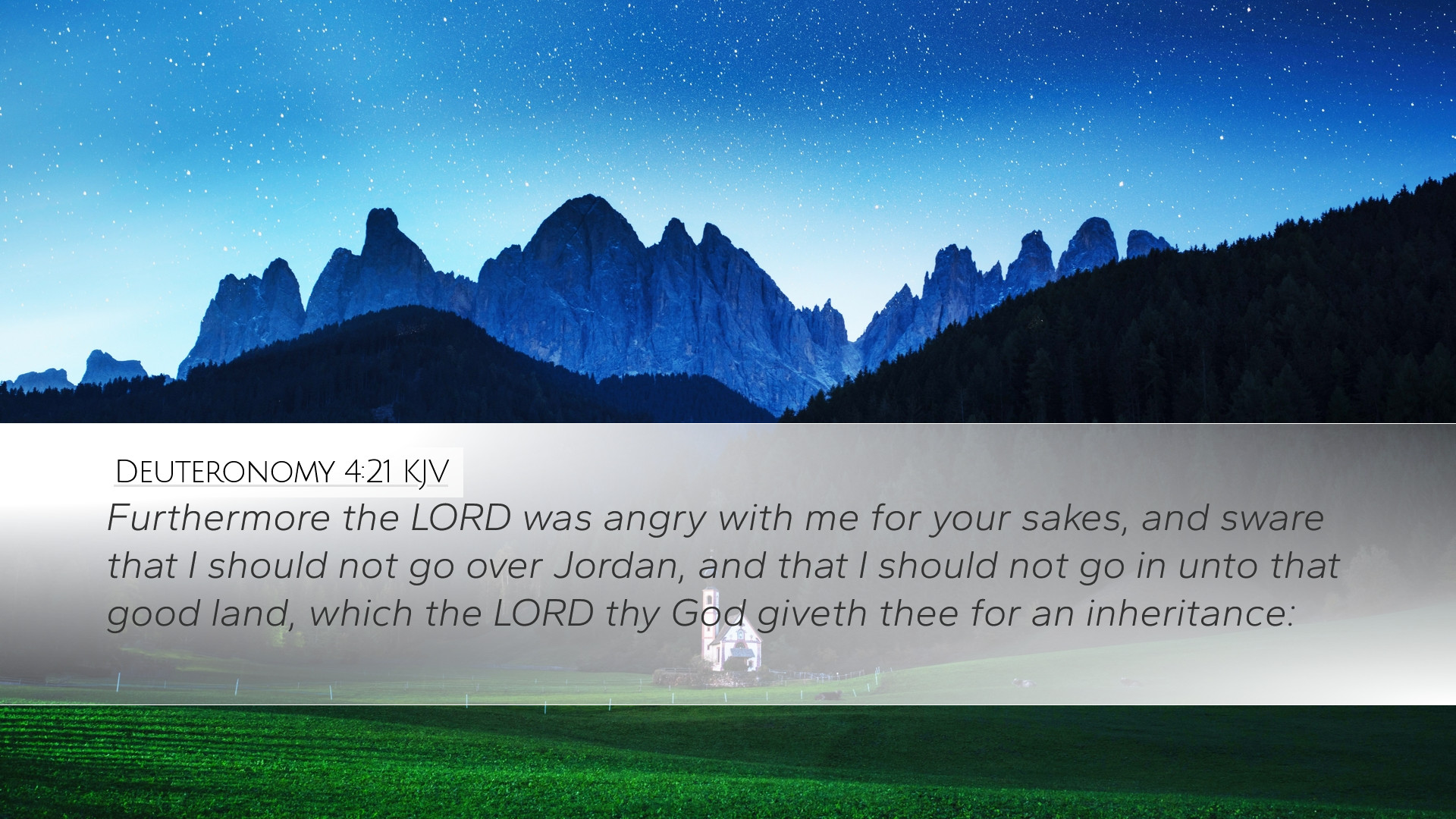Bible Commentary on Deuteronomy 4:21
Verse Text: "Furthermore, the Lord was angry with me for your sakes, and swore that I should not go over Jordan, and that I should not go in unto that good land, which the Lord thy God giveth thee for an inheritance."
Contextual Overview
In this passage, Moses recounts his experience and the anger of God that bars him from the Promised Land. This moment reflects not only Moses' personal punishment but also serves a broader purpose in terms of divine justice and the significance of leadership responsibilities.
The Significance of Divine Anger
Moses' statement, "the Lord was angry with me for your sakes," emphasizes the heavy burden of leadership in God's covenant community.
-
Matthew Henry highlights that leaders are often judged more strictly because they bear the weight of influencing others' faith and actions.
-
Albert Barnes notes that God's anger not only reflects His holiness but also His desire for His people to learn from their leaders' shortcomings.
-
Adam Clarke assures us that the divine anger serves a purpose—reminding future generations of the consequences of disobedience.
Moses as a Leader
Moses' relationship with God as a leader is pivotal. Matthew Henry observes that while Moses exhibited great faith and leadership, he occasionally faltered, which resulted in personal consequences.
-
Clarke relates the narrative of Moses' disobedience (cf. Numbers 20:7-12) as a reminder of the high standards expected from those called to lead.
-
Barnes interprets Moses' failure as a moment of human frailty but crucially asserts it points to the grace and justice of God, illustrating His sovereign authority.
The Promised Land
The mention of the Promised Land encapsulates hope, inheritance, and fulfillment of God's promises. Each commentator reflects on the depth of this concept:
-
Matthew Henry states that entering the land symbolizes receiving God's blessings, thus stressing the importance of obedience for all Israelites.
-
Albert Barnes expounds on the nature of the land as a representation of spiritual rest and fulfillment in God’s promises, alluding to the ultimate rest found in Christ.
-
Adam Clarke further notes that the land was a tangible sign of God's covenant, meant to encourage the Israelites to remain faithful to God's commands.
Lessons for Today
This verse holds significant implications for modern Christian leaders and believers alike:
-
Accountability: Leaders are accountable for their actions, with their failures potentially affecting many. The weight of leadership necessitates constant vigilance in faith and conduct.
-
Importance of Obedience: Just as Moses's disobedience had consequences, so too does the disobedience of believers. The pursuit of holiness remains vital for spiritual growth and inheritance of God's promises.
-
Hope in God's Promises: The land, while physical for the Israelites, represents the spiritual inheritance promised to believers. This reminds all Christians that faithfulness leads to fulfillment in God's eternal promises.
Conclusion
Deuteronomy 4:21 encapsulates the themes of divine justice, accountability, and hope. The reflections from commentators provide a wealth of insight into the complexities of leadership and the fidelity required in a covenant relationship with God. By learning from Moses’ experience, contemporary believers can navigate their spiritual journeys with a deeper understanding of the seriousness of their commitments and the profound hope found in the promises of God.


